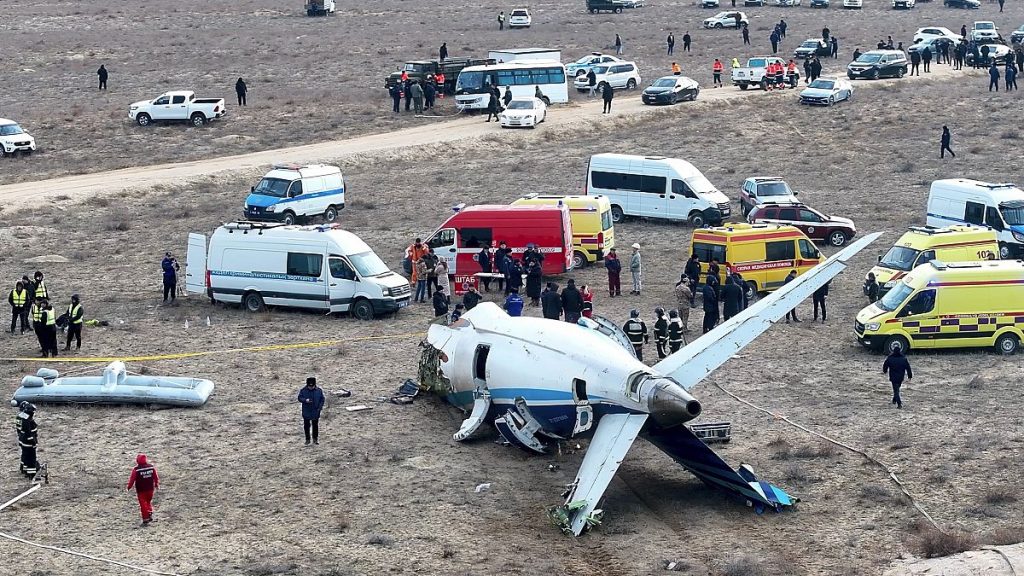The tragic crash of Azerbaijan Airlines Flight 8432 on Wednesday, en route from Baku to Grozny, has sparked an international investigation and raised serious questions about the potential involvement of Russian air defense systems. The aircraft, an Embraer 190, attempted an emergency landing in Aktau, Kazakhstan, resulting in the death of 38 passengers and injuries to 29 others. The incident occurred amidst reports of a drone attack within the region where the plane was scheduled to land, further complicating the circumstances surrounding the crash.
Initial assessments by both Azerbaijani officials and aviation experts pointed towards the possibility of Russian air defense systems being responsible for the downing of the aircraft. This theory gained further traction when White House National Security spokesman John Kirby stated that there were “early indications” supporting this claim. While declining to provide specific details due to the ongoing investigation, Kirby acknowledged the existence of evidence suggesting the plane was brought down by Russian air defenses. He also confirmed that the US possessed intelligence contributing to this conclusion, though he refrained from elaborating on its nature.
The investigation, spearheaded by Azerbaijan’s Minister of Digital Development and Transport Rashad Nabiyev, has shifted its focus to identifying the specific weapon involved in the incident. Survivor testimonies gathered by Nabiyev consistently recounted hearing three distinct blasts originating from outside the aircraft while flying over Grozny. These accounts, coupled with observed damage to the plane’s wing and interior, strongly suggest an external impact from a projectile. The recovery of the second black box is expected to provide crucial data for determining the cause of the crash.
The incident has led to a heightened sense of caution among several airlines regarding flights to and within Russian airspace. Azerbaijan Airlines has suspended flights to seven Russian airports, including Grozny, pending the conclusion of the investigation. Similarly, Kazakhstan’s Qazaq Air has temporarily halted flights to Yekaterinburg due to ongoing risk assessments, while Israel’s El Al has also canceled flights to Moscow this week, citing concerns related to developments in Russian airspace. These precautionary measures reflect the growing apprehension surrounding the safety of air travel in the region, particularly in light of ongoing geopolitical tensions and military activity.
The crash of Flight 8432 underscores the complexities and potential dangers posed by conflicts and heightened military activity. While the official investigation is yet to conclude, the emerging evidence and testimonies point towards the possibility of a tragic mistake involving Russian air defenses. This incident highlights the urgent need for clear communication and de-escalation measures to prevent similar occurrences in the future. The loss of life and the disruption to air travel serve as stark reminders of the far-reaching consequences of armed conflict and the importance of ensuring the safety and security of civilian airliners.
The international community awaits the final results of the investigation, which will hopefully shed light on the precise sequence of events leading to the crash and provide a definitive answer regarding the involvement of Russian air defense systems. The findings will have significant implications for international relations and could potentially lead to calls for greater transparency and accountability in military operations, particularly those taking place in close proximity to civilian air routes. The tragedy also underscores the need for improved protocols and communication mechanisms to prevent similar incidents from occurring in the future, ultimately safeguarding the lives of passengers and crew members.










